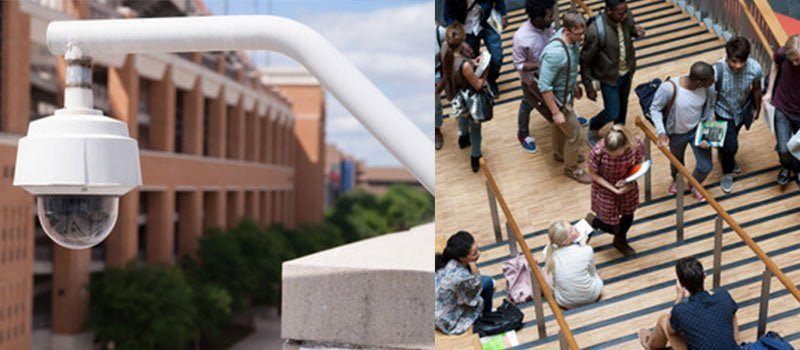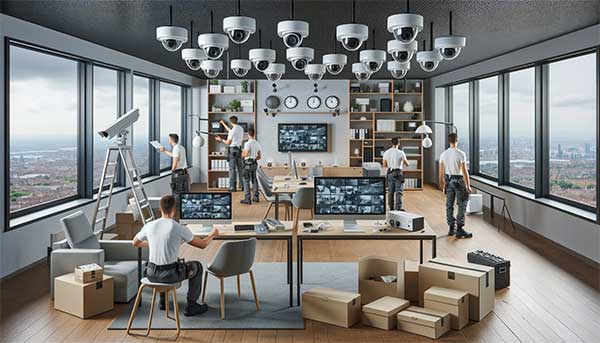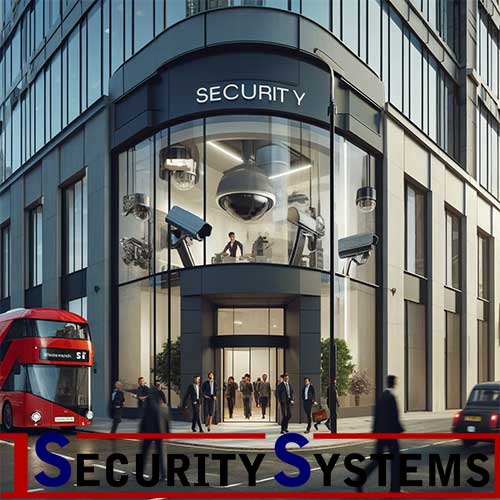CCTV Installation in Colleges and Universities
In the modern world, ensuring the safety of students, staff, and visitors in educational institutions is of paramount importance. One tool that has become increasingly popular in enhancing security measures within colleges and universities across the UK is the Closed-Circuit Television (CCTV) system. Let’s delve into the significance of CCTV installation in these institutions and the potential advantages it brings.
Understanding CCTV
CCTV stands for Closed-Circuit Television, a surveillance system that employs video cameras to transmit a signal to a specific, limited set of monitors. Unlike traditional television broadcasting which is openly transmitted to the public, CCTV signals are not openly transmitted.
Why Install CCTV in Colleges and Universities?
- Safety and Security: The primary reason educational institutions opt for CCTV is to ensure the safety and security of their occupants. These cameras can act as a deterrent to potential wrongdoers who might be considering theft, vandalism, or even more serious crimes. Having a visual record can also help authorities in case any investigation is necessary.
- Monitoring Access: Universities and colleges often spread over large areas, containing various buildings, labs, libraries, and recreational areas. CCTV helps in monitoring all these zones, ensuring that only authorised personnel have access to restricted areas.
- Reducing Bullying and Misconduct: Sadly, bullying can be an issue in some educational establishments. CCTV can act as a deterrent to such behaviour and provide evidence if an incident does occur.
- Protecting Assets: Institutions are home to expensive equipment, such as computers, laboratory apparatus, and books. CCTV helps in safeguarding these assets.
- Assisting in Daily Operations: Beyond security, CCTV can also help administrative staff in managing the day-to-day operations of the campus. For instance, they can monitor traffic flow during peak times or observe the usage patterns of certain facilities.
Points to Consider When Installing CCTV
Privacy Concerns: It’s vital to strike a balance between safety and privacy. Cameras should be installed in public areas like entrances, hallways, and parking lots but should avoid private zones like bathrooms, changing areas, and individual offices.
- Quality and Clarity: opt for high-quality cameras that provide clear images. Blurred or low-quality footage can defeat the purpose of having a security system in the first place.
- Data Storage: Ensure that there’s ample storage space for the video footage and that it’s stored securely. It’s also important to determine how long the data will be retained before being overwritten or deleted.
- Accessibility: The CCTV feed should be accessible to authorised personnel but protected against unauthorised access.
- Regular Maintenance: Like any other system, CCTV requires regular maintenance to ensure it functions effectively. Establish a routine check-up schedule.
- Compliance with Regulations: Ensure that the installation and use of CCTV complies with the UK’s legal and regulatory guidelines, including the Data Protection Act.
Benefits of CCTV Installation
- Deterrence: Just the mere presence of cameras can deter potential wrongdoers.
- Evidence Gathering: In the unfortunate event of a crime or misconduct, CCTV footage can provide invaluable evidence.
- Peace of Mind: Students, staff, and parents can feel more at ease, knowing that measures are in place to ensure safety.
- Efficient Response: Real-time monitoring can lead to quick responses in emergency situations.
- Cost-Effective: Though there’s an initial investment, CCTV systems can be more cost-effective in the long run compared to hiring additional security personnel.
The Way Forward
The debate over CCTV installation in educational institutions often centres around the balance between security and privacy. However, with careful planning, consultation, and adherence to regulations, colleges and universities can harness the benefits of CCTV while mitigating potential drawbacks.
The goal isn’t just to create a surveillance state within educational settings, but to foster an environment where everyone feels safe, protected, and focused on the primary mission: education. Properly utilised, CCTV can be an invaluable tool in this endeavour, helping our colleges and universities remain spaces of growth, innovation, and security.




